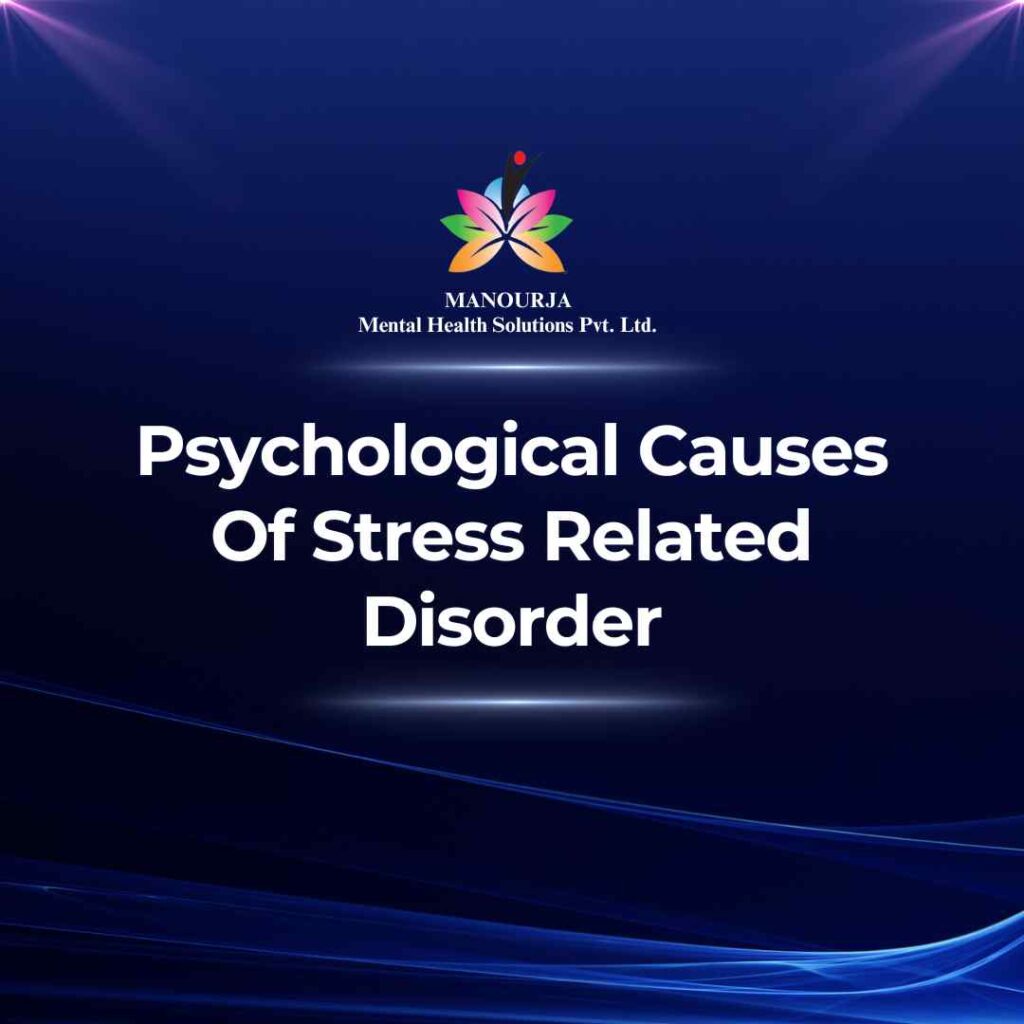Psychological Causes of Stress Related Disorder

Stress-related disorders arise not only from biological influences but also from a variety of psychological factors. These include how individuals perceive and respond to stress, their mental health history, and their coping mechanisms.
Here’s a closer look at some of the psychological causes of stress-related disorders:
- Perception and Interpretation of Stress: How a person perceives a stressor can significantly affect their vulnerability to stress-related disorders. For instance, if someone views a challenging situation as insurmountable, they are more likely to experience significant stress compared to someone who sees it as a manageable challenge. This perception is often shaped by past experiences, beliefs, and personality traits.
- Previous Mental Health Issues: Individuals with a history of mental health problems, such as anxiety or depression, are often more susceptible to developing stress-related disorders. Previous mental health struggles can make it harder for an individual to cope with new or ongoing stressors effectively, leading to a higher risk of exacerbating their condition.
- Coping Mechanisms: The strategies that individuals employ to cope with stress play a crucial role in the development or prevention of stress-related disorders. Ineffective coping mechanisms, such as avoidance, denial, or substance use, can exacerbate stress and lead to more significant mental health issues. On the other hand, adaptive coping strategies like problem-solving, seeking social support, and relaxation techniques can help mitigate the effects of stress.
- Trauma and Life Experiences: Traumatic experiences, particularly those occurring in childhood such as abuse, neglect, or witnessing violence, can profoundly affect an individual’s psychological resilience and stress response. Such experiences can alter how one responds to stress and can trigger a stress-related disorder later in life when faced with new stressors.
- Personality Traits: Certain personality traits can predispose individuals to stress-related disorders. For example, traits such as neuroticism (a tendency toward negative emotional states), pessimism, or perfectionism can heighten the risk as these traits may lead to stress being more frequently perceived, more intensely experienced, or more poorly managed.
- Learned Behaviors: From childhood, people observe and learn how to handle stress from those around them, particularly parents and close family members. If individuals grow up seeing maladaptive stress responses, they are more likely to emulate these behaviors in stressful situations, potentially leading to the development of stress-related disorders.
- Life Stressors: Ongoing stress from life situations such as chronic illness, relationship difficulties, workplace stress, or financial problems can continually challenge an individual’s coping abilities. Persistent high levels of stress without adequate relief or support can lead to the onset of stress-related disorders.
Understanding these psychological causes is crucial in treating and managing stress-related disorders. Treatment often involves psychological therapies that aim to change perception and coping mechanisms, such as cognitive-behavioral therapy (CBT), which helps individuals reframe negative thoughts and develop healthier coping strategies. Recognizing and addressing these psychological factors can significantly enhance treatment effectiveness and promote long-term mental health resilience.
At MANOURJA, we believe in the transformative power of counseling. Our experienced therapists offer a safe and supportive space where you can explore your thoughts, emotions, and challenges. Through personalized counselling sessions, we’ll work together to develop coping strategies, build resilience, and achieve lasting positive change. Discover the path to a healthier, happier you with MANOURJA counselling services.
MANOURJA Rehabilitation Services
At MANOURJA, we’re dedicated to helping you in rebuild your life, after difficult times. Our rehabilitation services focus on understanding what you need to move forward, whether you’re recovering from addiction, trauma, or any psychological – social challenges. We create personalized plans, that are all about helping you, regain your strength and find hope again. With a caring team by your side, you’ll have the support to make real progress and take steps toward a brighter, healthier future.
